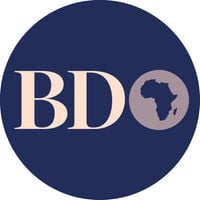
The Central Bank of Kenya offices in Nairobi. FILE PHOTO | NMG
The International Monetary Fund (IMF) wants financial transactions of politicians and their networks tracked in a bid to stop corruption.
The IMF has asked the government to tighten anti-money laundering laws and increase inspections on bank transactions of both physical and financial audits to expose networks of politically linked individuals.
The global lender wants Kenya to seal all loopholes used by corrupt individuals within the government to steal public funds through proxies.
“Anti-money laundering (AML/CFT) risk-based supervision should be further strengthened using supervisory tools like onsite and offsite supervision to ensure banks adequately implement enhanced due diligence measures on politically exposed persons and other higher-risk customers vulnerable to corruption,” the IMF said in the latest programme review.
Banks are already required to report suspicious transactions, vet customers details and know-your-customer rules and report when more than $10,000 (Sh107 million) is moved across their systems.
The banking regulator also expanded its dragnet to unveil the identity of big traders of the Absa’s
gold-backed exchange-traded fund listed on the Nairobi Securities Exchangeafter the counter picked up trades during the Covid-19 pandemic.
Recent investigations into money laundering schemes have revealed how officials siphon State funds through proxies and a complex web of related bank accounts to cheat existing money laundering laws.
Assets Recovery Agency, recently accused senior procurement officer at Kenya Rural Roads Agency Margaret Wanja Muthui of buying apartments herself or through proxies and a company whose directors were mostly her relatives during the demonetisation period.
The Central Bank of Kenya has been tightening the noose on money laundering to stop drug dealers, fraudsters, tax evaders, corrupt politicians and terrorist groups from laundering their cash in Kenya
In 2019, the banking regulator issued a circular to lenders to increase scrutiny on accounts of politicians and senior government officials, NGOs and cash-intensive businesses such as supermarkets, liquor stores and car dealership.
The circular on money laundering also sought to tighten oversight on businesses operated by professional service providers, foreigners, casinos, real estate dealers and dealers in precious metals.
The Central Bank even cracked down on the banks involved in the National Youth Service II scandal and fined five banks — KCB
, Equity , StanChart , Co-operative and DTB — Sh392.5 million for facilitating one of the country’s biggest frauds.





No comments :
Post a Comment